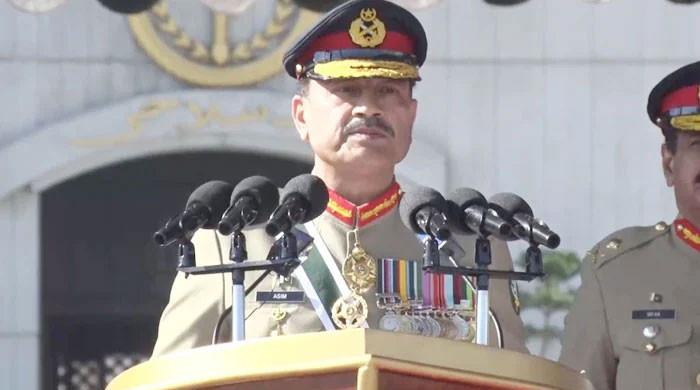Pakistan's recent financial aid and investment partnerships, including with the IMF, Saudi Arabia, UAE, and China, provide temporary relief from economic challenges, but the country must address issues such as low growth, high inflation, unemployment, and limited foreign exchange reserves through deregulation, investment in education and technology, tax reform, privatization, and political stability to achieve lasting prosperity.
Saudi Arabia, as a new member of the BRICS economic alliance, plans to invest $16 billion from its foreign reserves, signaling a shift towards prioritizing investment over reserves and potentially bolstering the bloc's ongoing initiatives.
Pakistan is expecting $60-70 billion in foreign investment over the next three to five years through the Special Investment Facilitation Council, according to interim prime minister Anwaar-ul-Haq Kakar.
Chief of Army Staff (COAS) General Asim Munir has pledged to bring transparency to dollar exchange and interbank rates, and to incorporate money exchanges under taxation, during a meeting with the business community in Lahore.
Pakistan's Chief of Army Staff, General Asim Munir, outlines key economic policies and assures a stable business environment during a meeting with top businessmen in Karachi, reflecting similarities with former military dictator Zia-ul-Haq's approach.
Saudi Arabia plans to invest up to $25 billion in Pakistan over the next few years, focusing on sectors such as mining, agriculture, and information technology, in an effort to increase foreign direct investment and aid Pakistan's economic recovery.
Pakistan's civilian and military leaderships are optimistic that Gulf states, particularly Saudi Arabia, will invest billions of dollars in the country to alleviate its cost-of-living crisis, but doubts remain about the feasibility of these projections and the need for economic reforms and stability.
Pakistan's interim government is prioritizing economic revival and fulfilling international obligations, including agreements with the International Monetary Fund (IMF), to address the stagnant economy and financial issues. They aim to improve the overall business and investment environment, increase inflow of dollars from multilateral institutions, and reduce expenditures while upholding international agreements.
Pakistan needs to address concerns related to incentives, coordination, and remittance in order to secure Saudi investments in copper, mineral, refinery, and solar projects worth $25-30 billion, including the construction of a $10-12 billion refinery in Hub or Gwadar.
The United States has pledged $40 million in new investment for Pakistan at the USAID 'Invest in Pakistan' conference, with four diaspora partners committing a total of $44 million in new investment.
The Pakistani military's crackdown on the black market has led to a significant influx of dollars into the interbank and open markets, resulting in the recovery of the Pakistan rupee and its strengthening beyond the official rate, with the campaign being credited to army chief General Asim Munir.
